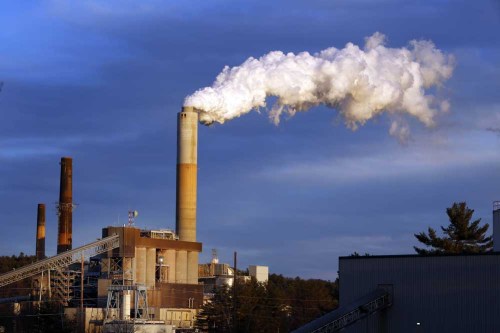DEQ should catch up before adding new work
Published 12:59 pm Wednesday, January 3, 2018

- In this 2015 file photo, a plume of steam billows from the coal-fired Merrimack Station in Bow, New Hampshire.
Rural Oregon is no stranger to watching laws and rules get made in Salem that have negative and unintended effects in our part of the state.
It’s also not uncommon to watch the state make a grandiose plan with the intent of improving the lives of its citizens without the means to carry it out or a clear grasp of the problems it will face.
We’re seeing a little of both from the Department of Environmental Quality, the agency tasked with monitoring our air, water and land, implementing rules to keep them clean, and punishing those who don’t follow the law.
As we learned today in a state audit, the DEQ is struggling to keep up with that mission. A backlog of permits and inspections are plaguing the agency, possibly putting the health of Oregonians at risk as rules already on the books aren’t being enforced.
The audit pointed to a few reasons. There’s the “poorly documented and inconsistent” permitting process, which makes for extra work tracking individual cases and headaches for businesses that have to deal with the agency. There’s also more than 100 vacant positions at the DEQ, spreading that work out among too few employees.
On top of that, the Cleaner Air Oregon initiative set in motion by Governor Kate Brown has added to the workload of the agency already thin on employees.
The Cleaner Air project is in response to toxic emissions detected at a glass factory in southeast Portland in 2016.
It would require companies to report their use of about 600 chemicals, including heavy metals and other air pollutants, and then calculate potential health risks to nearby communities. The plan could be approved by the Environmental Quality Commission as early as July.
It’s the kind of rule that looks great on paper — a quick response to an problem that may have damaged the health of the factory’s neighbors, both human and natural. But it’s also a broad brush.
We understand that environmental regulations require big picture thinking. What good is a local regulation if the community upstream isn’t following healthy guidelines?
But in the case of Cleaner Air Oregon, we’d suggest the DEQ get its house in order before enacting new rules, so it can fully understand the impact on all sectors.
We’re thinking specifically of the food processing industry, which makes up about 28 percent of employment in Morrow County and 6 percent in Umatilla County.
We expect these producers to be held accountable for their emissions, but adding another broad layer of bureaucracy isn’t the way to do it. It won’t make the air cleaner, nor find previously undetected harmful elements.
It makes food processing expansion in Umatilla and Morrow counties less enticing, while adding no benefits in quality of life for our residents.
We hope the DEQ and EQC take these concerns into consideration before passing a feel-good blanket rule.






